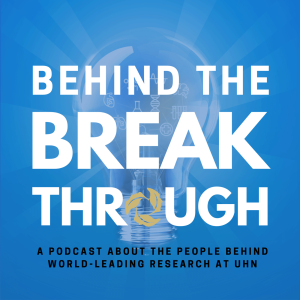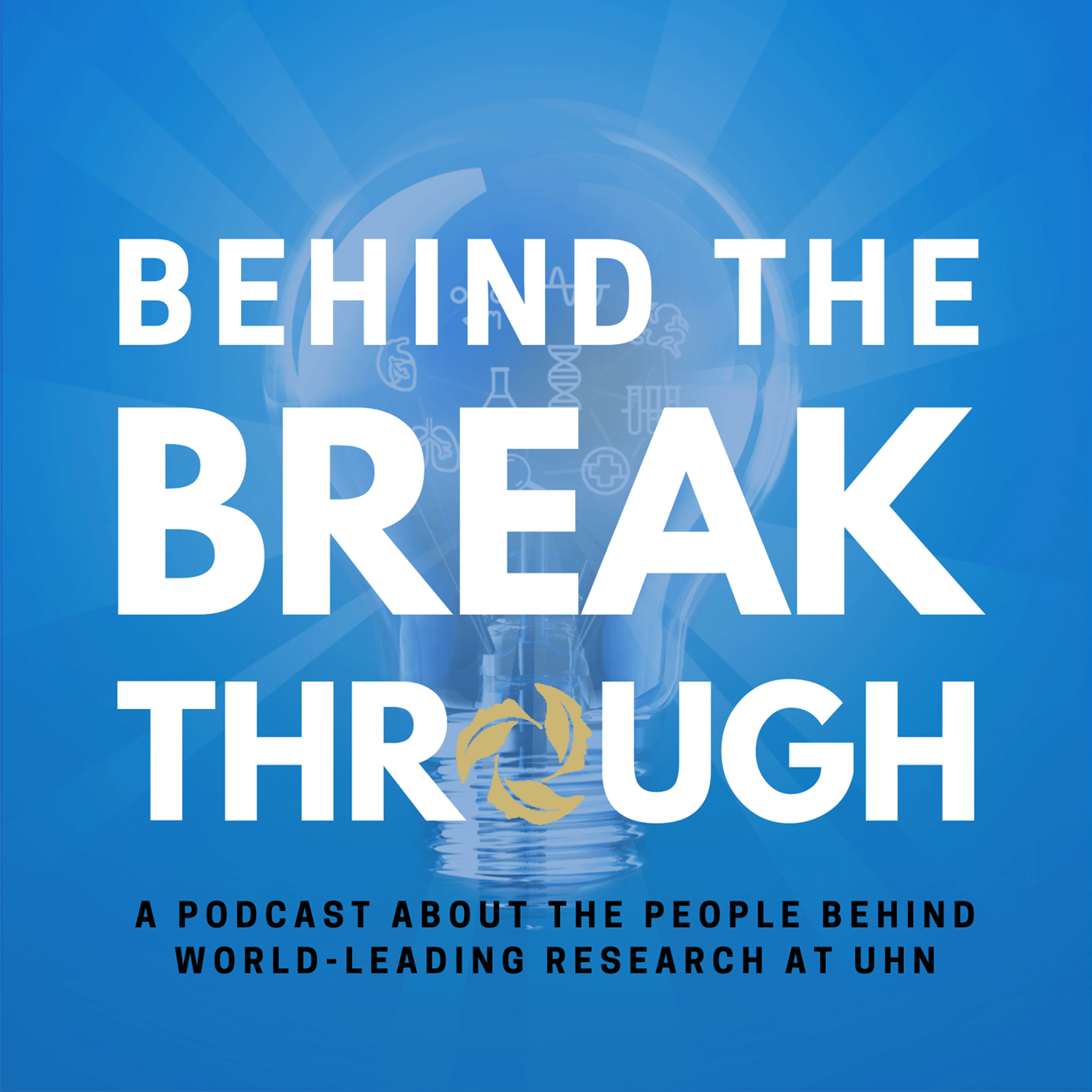Episodes

Monday Apr 03, 2023
Checkout Season 2 of Your Complex Brain
Monday Apr 03, 2023
Monday Apr 03, 2023
Season 5 is just around the corner, coming Fall 2023. Until then check-out our friends at UHN's Krembil Brain Institute as they launch season two of Your Complex Brain!
Well, it’s no surprise. Since last season, our brains haven’t gotten any less complex! But that just means there are even more stories to share about the mysteries, myths and science behind how our brains work, and what keeps our brains healthy and fit.
On Season 2 of our podcast Your Complex Brain, we’ll highlight the latest research, technology and innovations in brain science by speaking with thought leaders & experts, as well as patients, their families and the dedicated care teams on the front lines of keeping our brains healthy - and fixing them when illnesses arise.
This season, we’ll be looking for answers to some pretty big questions – such as, ‘Is stress contagious?’ ‘Why are many women living with brain disease experiencing a delay in diagnosis?’ And, ‘How could advances in technology improve outcomes for patients who undergo deep brain stimulation?’
And those are just the first three episodes!
There are a million amazing things to know about your complex brain – and we couldn’t be more excited to explore them with you.

Friday Dec 09, 2022
Friday Dec 09, 2022
Renowned UHN surgeon scientist Dr Shaf Keshavjee sits down with Behind the Breakthrough podcast Host Christian Cote’ and takes listeners on a behind-the-scenes journey of his ground breaking medical discoveries – two of which have had a profound impact on lung transplant around the world. For his Master’s thesis in the late 1980’s he developed a lung preservation solution – LDP – which is now the standard for lung preservation worldwide. Twenty years later he followed that up with the invention of a lung perfusion machine that preserves and treats damaged donor lungs outside the body – or ex vivo. The Toronto Ex Vivo Lung Perfusion System has doubled the number of lungs available for transplant and is now in use around the world. Today the system is being tested to treat other damaged organs including the liver, kidney, and heart. In this wide-ranging and revealing conversation Sprott Department of Surgery’s Dr. Keshavjee speaks to the importance of mentorship, the qualities necessary to be a successful scientist, and, the importance of scientists learning about patenting and commercializing their work.

Friday Dec 02, 2022
Pioneering the use of virtual reality devices to restore vision
Friday Dec 02, 2022
Friday Dec 02, 2022
Restoring vision for the visually impaired has been a dream of scientists and clinicians for centuries. Neurodegenerative eye diseases like glaucoma or age-related macular degeneration affect visual information processing. But the visual system in humans is smart–it can compensate for a loss in connectivity caused by disease.
The potential for virtual reality cognitive retraining may improve the quality of life in visually impaired individuals. These retraining devices are effortlessly portable; therefore, protocols can be completed from the comfort of someone’s home.

Wednesday Nov 30, 2022
Dr. Rama Khokha on her breakthrough to map the biology of pancreatic cancer
Wednesday Nov 30, 2022
Wednesday Nov 30, 2022
Pancreatic cancer is an aggressive disease with poor survival rates. Huge contributors to this dire outcome are the fact it is typically diagnosed at an advanced stage, has limited treatments, and no cure. This is what makes the discovery of Dr. Rama Khokha and her lab so profound. In this episode of Behind the Breakthrough podcast the senior scientist at UHN's Princess Margaret Cancer Centre walks us through her world first discovery - mapping the biology of a pancreatic cancer tumor. Dr. Khokha found three distinct tumor microenvironments [TME’s] for pancreatic cancer – Resistant; Deserted; and Intermediate. The Resistant TME was found to be the most aggressive, while the Deserted MTE was found to resist - and grow - during chemotherapy. Dr. Khokha’s mapping discovery now gives researchers a clear understanding of the behavior of pancreatic cancer. It has the potential of far reaching impact – contributing to research for new and improved treatments, the potential for earlier diagnosis, as well applying her mapping technique to other cancers such as colorectal and lung cancer.

Monday Nov 21, 2022
Promising new treatment for Parkinson’s Disease
Monday Nov 21, 2022
Monday Nov 21, 2022
Dr. Lorraine Kalia’s research looks at testing different compounds in C. Elegans and how it can lead to a better understanding of Parkinson’s disease and new therapeutic targets. The best part: some of these compounds are already approved for use in humans. Through Dr. Kalia’s research we may be able to repurpose these compounds for the neurodegenerative condition.

Wednesday Nov 16, 2022
Dr. Eleanor Fish pioneers research using Interferons to treat virus outbreaks
Wednesday Nov 16, 2022
Wednesday Nov 16, 2022
In this episode of Behind the Breakthrough, Dr. Eleanor Fish dives into her groundbreaking research of treating viruses by harnessing a naturally occurring antiviral protein in our body called Interferons. Dr. Fish, an Emerita Scientist at Toronto General Hospital Research Institute, is a world leading immunology researcher and a passionate about the importance of Interferons in fighting pandemics and virus outbreaks such as COVID-19, SARS, and Ebola.

Friday Nov 04, 2022
Dr. Jonathan Irish pioneers Augmented Reality in Cancer Surgery
Friday Nov 04, 2022
Friday Nov 04, 2022

Wednesday Nov 02, 2022
Pioneering a Diagnosis for CTE
Wednesday Nov 02, 2022
Wednesday Nov 02, 2022
Each year over 20,000 Canadians are sustain a traumatic brain injury, which affects an individuals personality, well-being and those around them. In this episode of Behind the Breakthrough, we sit down with Dr. Carmela Tartaglia at UHN's Krembil Brain Institute to discuss her research. The goal: to better understand concussion, their effects and eventually develop diagnostic tools for conditions like Chronic Traumatic Encephalopathy.

Wednesday Oct 26, 2022
A new toolkit for LTC to help care of residents during an outbreak
Wednesday Oct 26, 2022
Wednesday Oct 26, 2022
Being in lockdown is hard. The COVID-19 pandemic taught us that. But for long-term care (LTC) homes – where resources were limited, and public health measures failed to take into account the needs of patients with dementia – lockdown was even harder.
This is what prompted Dr. Andrea Iaboni, a geriatric psychiatrist and clinical researcher at UHN’s Toronto Rehab and Medical Lead of the Specialized Dementia Unit, to develop the Dementia Isolation Toolkit (DIT), a comprehensive guide to caring for long-term care patients amid the pandemic. Her motivation behind it? A commitment to delivering compassionate care to patients with dementia, while also upholding government mandated infection prevention and control measures. Since launching in 2020, the DIT has been downloaded more than 9,000 times across 94 different countries, helping LTC staff care for adults with dementia on a global scale.

Thursday Oct 13, 2022
Thursday Oct 13, 2022
In this episode of Behind the Breakthrough Dr. Gordon Keller talks about his staggering legacy of advancing the field of regenerative medicine, including his lab’s world-first discovery of the hemangioblast. The hemangioblast is the precursor cell that goes on to form blood vessels and other blood cells in the body. That 1997 discovery led to the next step in Dr. Keller's research – successfully ‘differentiating’ or coaxing precursor cells into becoming a specific cell type that could potentially replace or regrow damaged parts of the body. This seminal work laid the foundation for the research he oversees today at UHN’s McEwen Stem Cell Institute harnessing stem cells to repair damaged organs such as the heart, liver and pancreas.

